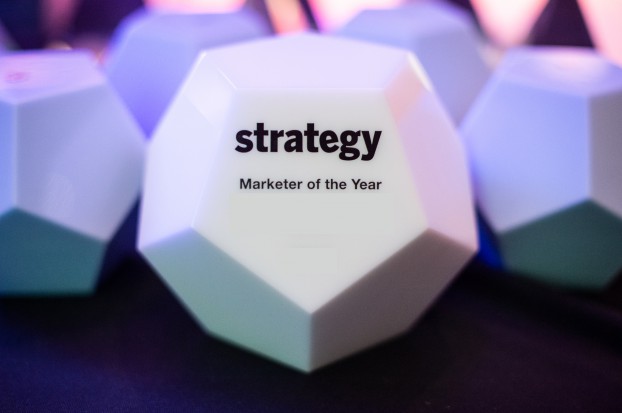You mean there’s an advertising industry outside of Toronto?
That, says Jacques Dorion, sums up the attitude of many Canadian marketing professionals.
The result, adds the president of Montreal-based Carat Stratégem, is a curious set of double standards, particularly with respect to media buying. While Toronto-based buyers routinely purchase Quebec – no questions asked – many advertisers still question the ability of a Quebec agency to do buys in other provinces.
Dorion, however, harbours no such doubts about his own agency – especially now.
Until this past summer, Dorion ran Quebec’s largest independent media agency, Stratégem. With 40 employees and clients such as Chanel, National Bank of Canada, Hydro- Québec and the home improvement chain Rona, Stratégem enjoyed billings of $65 million last year.
Then, in July, the agency sold a 49% stake to Carat, a u.k.-based international media giant with us$8 billion in worldwide billings. Dorion, who founded Stratégem 19 years ago, retains a 51% share of the business. (Carat is still seeking a Toronto-based partner to flesh out its Canadian presence.)
With Carat on board, Dorion says, decision-makers in Toronto are more likely to start taking his agency seriously. ‘It shows clients that we can be more than a regional player,’ he says.
One of the major ongoing challenges for the agency has been keeping its approach fresh and inventive as the broadcast environment evolves. That’s especially true now, since clients no longer depend solely on the advice of media planners and buyers when making decisions.
Indeed, when price is the issue, clients are all too happy to open their doors directly to network and station representatives, Dorion says – with the result that planners and buyers are rapidly losing their status as all-knowing media wizards.
Most major broadcasters, he notes, now have in-house ‘creativity’ departments founded solely for the purpose of coming up with fresh concepts to sell to advertisers. Media agencies, Dorion says, must have the flexibility to listen to and work with these new departments.
‘The media are more dynamic than they used to be,’ he says. ‘They’re coming in with new ideas and challenging media people. We have to make sure we’re part of the discussion.’
Media operations have other reasons to feel uneasy about the rise of these in-house creativity departments. As Dorion points out, they’re causing a serious drain on the media talent pool, since the broadcasters draw most of their staff from the agency world. ‘There’s definitely less media talent available in Quebec than in the past,’ he says.
Mind you, Dorion adds, agencies mainly have themselves to blame for the situation, since they’ve tended to assign media a backseat role relative to creative.
‘Until recently, media wasn’t well-regarded or respected by the community,’ he says. Compensation has reflected this attitude – which has made it easy for professionals to jump the fence when given the opportunity.
While Stratégem hasn’t been affected by this brain-drain, Dorion says, other agencies aren’t so lucky.
‘The industry has lost many talents because agencies didn’t invest properly in media training and teaching,’ he says. And it may already be too late to find a solution.
Over the last several years, Stratégem has enjoyed steady growth at an annual rate of 15-20%. But Dorion says the secret to the organization’s success has been hanging onto its small-agency attitude. ‘We still have the passion for the business,’ he says.
Finding new and unique vehicles to help clients promote their products and services is a priority, Dorion adds. Indeed, the agency has four staff members dedicated full-time to seeking out such opportunities.
Last year, for example, Stratégem arranged to have a post-it ad for Hydro-Québec placed on the cover of Le Journal de Montréal – the first time such an ad had ever appeared in Quebec.
The agency has also had considerable success negotiating sponsorship of and product placement in high-profile Quebec television shows. Last April, for example, an episode of src’s Un Gars, Une Fille showed the characters shopping in a Rona store. And Vachon, another Stratégem client, is a sponsor of the immensely popular src series La Petite Vie.
What clients expect from a media agency, Dorion says, is ‘the best value at the right price – and no compromise on service.’ Joining forces with Carat, he contends, has put Stratégem in an even better position to meet those demands, by providing access to more of the resources necessary to get the best buy at the best cost.
Consolidation in the media business doesn’t bode particularly well for small, independent players, Dorion says. Increasingly, they may find that they lack the clout to make major television buys.
Larger players, however, face challenges of their own. Many clients still want the dedication of a small organization, he says – and they’re uncertain of being able to get that from a media giant.
‘We have to convince clients that we can still offer personal service,’ he says.
Also in this report:
– Joint honours go to McKim and MBS/The Media Company p.C2
– The Media Company ahead of its time: Joint venture the first wave in tide of consolidation now sweeping the industry p. C4
– McKim gets vote of confidence, new name: As part of the OMD deal, BBDO will be dropping the McKim name from its media operation p.C7
– Boden’s the best, say media sellers: 25-year McKim veteran prepared to assume leadership of OMD p.C10
– The media directors’ honour roll p.C15























